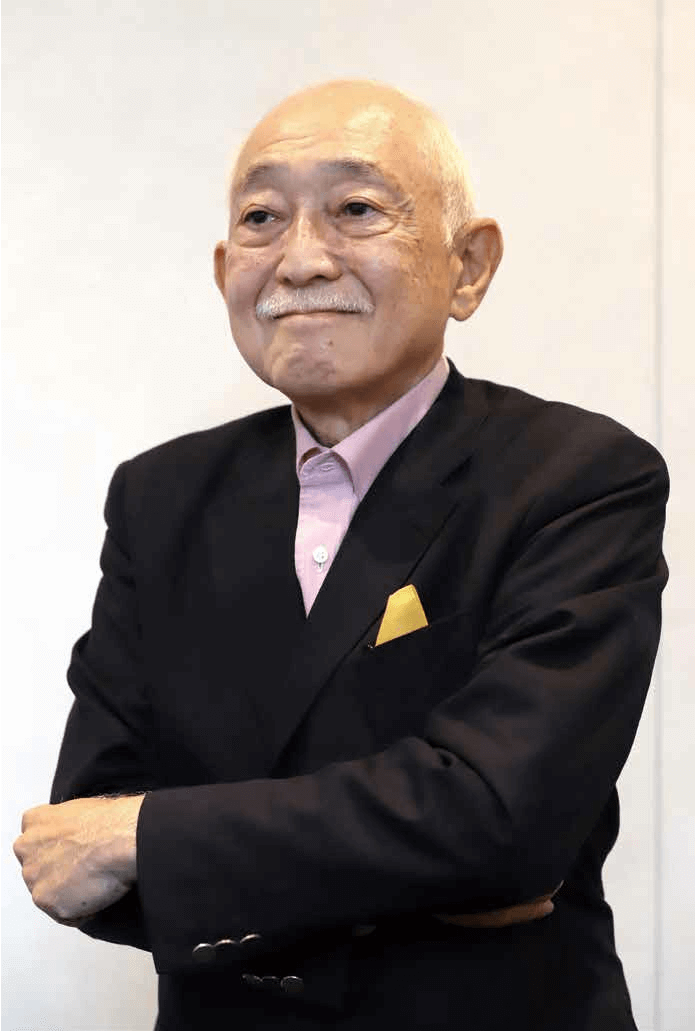Issue:
Milton Isa
Associate Member
By David McNeill
Though he hardly looks old enough, Milton Isa remembers the departure of General MacArthur from Japan in 1951. Then just a toddler, Isa was among maybe half a million people who lined the streets to Haneda Airport to see off MacArthur, who had effectively run the nation since 1945 before being relieved of his command by President Harry Truman.
Isa’s peripatetic childhood included stints in Hawaii (where he was born), Europe and California but a family thread always pulled him back to Japan. His dad was nissei (second generation) Japa nese and ran early computers for the Department of Defense during the US occupation. He met Milton’s Japanese mother in Tokyo.
HE HAS SINCE SPENT MUCH OF HIS TIME TRYING TO STRAIGHTEN OUT THE CLUB’S FINANCES.
“YOU LEARN A LOT OF PATIENCE,” HE LAUGHS.
It could all have been so different. Isa’s father was a third year college student in California when war broke out in 1941. He was shipped in cattle cars along with thousands of other ethnic Japanese to a camp in Heart Mountain, Wyoming. “If he had stayed in Hawaii he would have been fine,” says Isa. “They weren’t interning people there.”
As it was, there was only way out of the camp, so his father volunteered to help the war effort against Japan. When it ended, he was assigned to an office with US military intelligence just up the street from the FCCJ. His job included assessing the damage from the American bombing campaign that had leveled most Japanese cities.
“He went all over Japan interviewing people, asking ‘where did the aircraft come over your city?’ and ‘how did you feel?’” recalls Isa. “One of reasons he was in military intelligence was that he spoke Japanese.” Among the places he took his son was to Niigata, “where the bombing had been quite heavy.”

THE FAMILY RETURNED TO Hawaii and Isa eventually went to Seattle University, where he graduated with a BA in business administration. Then it was off to Japan again: all men at the college had to take basic ROTC training. When he graduated in 1970 he was sent as second lieutenant on temporary duty to Okinawa.
Luckily for Isa, the Vietnam War was winding down, but that didn’t mean he was out of danger. Assigned to a medical company, he was ordered to help move highly toxic chemical munitions, including FX Gas and Agent Orange, from Tengan Pier in Okinawa to the Johnston Islands. The military kept cages of rabbits on flat bed trucks in case the chemicals leaked.
Luck struck again when he returned to the US after active duty: Merrill Lynch was recruiting staff to come to Japan. “I came here with a typewriter, suitcase and golf bag,” he recalls, laughing. He spent 20 years with the investment bank before joining the Boston based State Street Corporation, the largest custodian bank in America. Isa helped set up the bank’s securities operation in Tokyo.
SOMEWHERE IN BETWEEN, HE got married and set up home in the Shitamachi area of Tokyo, not far from where his mother grew up. “I love it there,” he says.
His involvement with the FCCJ began in 1992, as an associate member initially attracted to PAC events. At some point, he recalls, he became grimly fascinated by the FCCJ’s tangled politics.
“I was chairman of the finance committee of the American Club. I couldn’t believe how poorly the finances of [the FCCJ] were run. There was too much infighting. People were not looking ahead or looking out for the best interests of the Club. They didn’t see that the demographics of the Club were going to change; that the membership was getting older. They didn’t prepare for that.”
He was among those who began pushing for more say in Club activities by the 1,600 associate members and professional associates who pay the bulk of its dues. Associates, he says, bring expertise from banking and other industries. That campaign culminated with his first election as associate to the FCCJ board in 2014–2015. He has since spent much of his time trying to straighten out the Club’s finances. “You learn a lot of patience,” he laughs.
Isa supported the move to the Club’s new premises and rejects criticism that it is too expensive. “If we’d stayed at the Denki Building in Yurakucho, what was our future? We were going to go bankrupt there; one broken pipe and we couldn’t get insurance.”
He says the Club must be pragmatic about its future in a world where journalism may no longer pay the bills. Among his proposals is charging “administrative fees” of ¥500 to attend press conferences. “People come here and break our walls but we pay for that. We’re famous; we should use our FCCJ brand. A lot of people who have banquets here think it is prestigious. We need more effort to market the Club.
where our strength is. And we have a special banker behind us the Mitsubishi Group. They’re not going to throw us out because we’re not paying our rent for a few months. They’re pragmatic people too. We should get serious but it’s not as bad as some think it is. I’ve helped a lot of companies that were in far worse shape, and much more optimistic.”
“If every one member can bring in one member, our problems will be solved.”
David McNeill writes for the Irish Times and the Economist, and teaches media literacy at Hosei and Sophia Universities.

